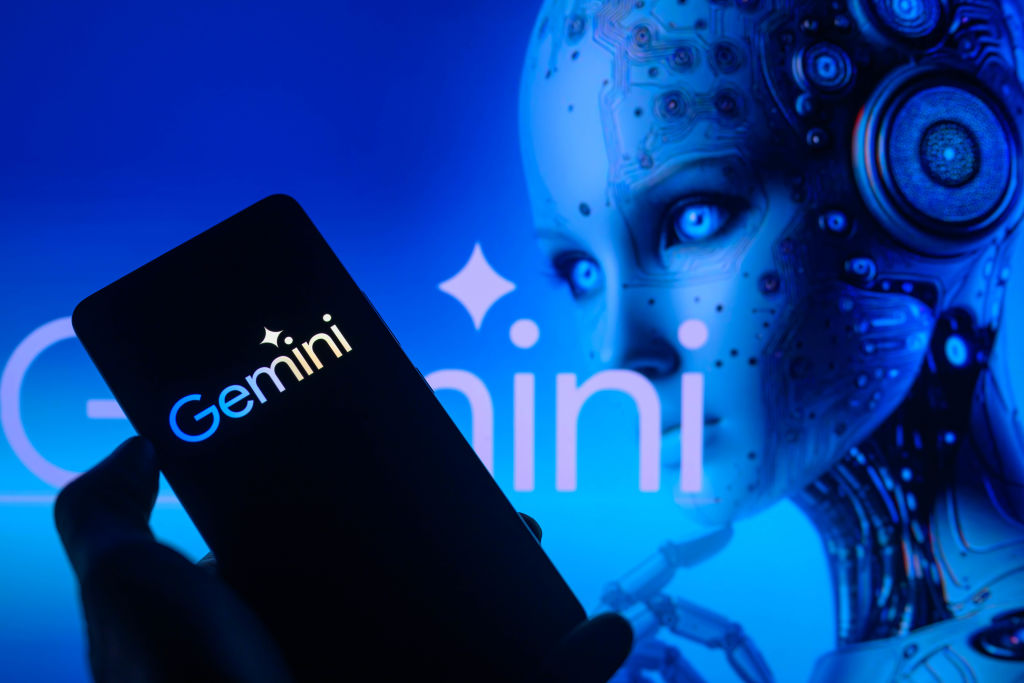Are we ready to live in our new digital environment?
Finetuning the Matrix

Google’s AI problems are rooted in political, and personnel, decisions.
Did Hamas commit rape in Israel? As it turns out, rape denialists don’t just exist on college campuses; they also exist in our AI tools. When I asked Gemini, Google’s DEI-powered AI tool, that same question, it told me (and others) that there’s no concrete evidence to support the allegation.
As easy as it is to mock Gemini, though, one wonders why Google executives believed that Gemini would be the king of all AI products—when, in reality, Google employees have always been unwilling to point out that the emperor has no clothes.
When I worked at Google, my claim to fame was that I caught YouTube red-handed when they manually intervened in search results for abortion, weeks after Google CEO Sundar Pichai told Congress in sworn testimony, “We don’t manually intervene on any particular search result.” (To clarify, though, I still spent most of time at Google doing my actual job—unlike certain activists drawing pay from Google.)
Whether the topic is Gemini or search results for abortion, though, the real question is not, How did this happen, but Why did it happen? In a company with over 100,000 employees, surely someone noticed these issues before Gemini was released. Why has Google fostered a culture that incentivizes silence?
The internal echo chamber at Google is the key problem. When some Google employees apparently feel comfortable enough to scribble “Free Palestine kill all Jews” on random posters, it would not be surprising to learn that Hamas sympathizers at Google can speak freely and influence how Gemini answers queries. What I question is whether everyone else at Google can freely speak up, too.
Sriram Krishnan of Andreessen Horowitz has raised the same concerns. “Having been part of organizations where there was an implicit progressive political leaning,” Krishnan said, “I can see why it would have been hard for anyone to point out the obvious.” As he noted, if you point out that the emperor has no clothes, you get thrown in prison, “or in this case, dragged before HR.”
I can remember several stories like that (including my own), but one that stands out is the story of Manuel Amador. After activists filed an HR complaint against Amador, he was hauled into a meeting with HR and asked to apologize for something he did not say and does not believe. He left the company shortly after. Had he still been at Google, Manuel would have been outspoken about Gemini’s obvious problems.
Even when the stakes get serious, the politically-inflected madness does not subside. When Google employees criticized Project Dragonfly, Google’s (now-abandoned) plan for a censored search engine for China, a microaggressions newsletter run by HR shamed employees for creating anti-Dragonfly posters that used the Chinese flag. Negatively portraying a national symbol made Chinese employees “feel unsafe.” In retrospect, perhaps it’s not surprising that Gemini advises caution when you ask it if China is committing genocide against the Uyghurs.
Social psychologist Jonathan Haidt once said, “morality binds and blinds.” In the past, we were bound by a dream, in the words of Martin Luther King, that one day people “will not be judged by the color of their skin, but by the content of their character.” Today, Google is blinded by intersectional morality based in critical race theory that divides people into “privileged” and “oppressed” groups defined by the color of the skin and other immutable traits. (In practice, this regime labels Jews as “privileged,” though that’s rarely said out loud.)
And HR functions as the enforcers of this new morality. If an activist employee files an HR complaint, the merits of their accusation are not what matters. What matters is that the accuser is oppressed (or an ally of the oppressed)—even if they accuse you of something you did not say.
So what can we do? Is there a practical way to dismantle DEI at Big Tech companies, so that employees are no longer afraid to point out that the algorithm doesn’t work, and that the emperor has no clothes?
DEI activists use the threat of non-compliance with civil rights laws to gain a foothold in the corporate structure. But, ironically, in many cases their actions expose companies to more legal liability, not less.
In one viral example, an anonymous Twitter user once got Mark Cuban to confess that he violated the law. In a debate over DEI, Cuban said that “race and gender can be part of the equation” for hiring. An EEOC commissioner replied to remind him that under black-letter Title VII law, “race/sex can’t even be a ‘motivating factor’—nor a plus factor, tie-breaker, or tipping point.”
DEI activists insist, often successfully, that DEI must be integrated into every part of the company. But when DEI gets integrated into hiring and promotion decisions, serious legal problems arise.
If one factor in evaluating a manager’s leadership skills is his ability to promote your company’s diversity and inclusion goals, that may not sound controversial at first to the average person. What happens, however, if the company’s DEI programs encourage you to treat “privileged” people differently? At Google, I once attended a DEI training where you had to fill out an “advantage” checklist; one “advantage” was being a Christian. (Even the writers of HBO’s Silicon Valley know that’s not true.)
There’s a saying in politics that “personnel is policy.” When DEI influences product decisions, that’s just the way things go. But when DEI infects personnel decisions, the company is exposed to civil rights liability, creating an opening to attack DEI from the outside. Free thinkers and advocates for a sane society should focus on holding woke corporations to account for their warped hiring and promotion practices, which frequently, as Mark Cuban admits, march blindly into the swamp of federal employment law.
If policy really is downstream of personnel, then fixing the personnel problems will ultimately address the policy problems. It’s a lot easier to fix the policy problems when employees can finally say that the emperor is naked.
The American Mind presents a range of perspectives. Views are writers’ own and do not necessarily represent those of The Claremont Institute.
The American Mind is a publication of the Claremont Institute, a non-profit 501(c)(3) organization, dedicated to restoring the principles of the American Founding to their rightful, preeminent authority in our national life. Interested in supporting our work? Gifts to the Claremont Institute are tax-deductible.
ChatGPT will replace writers who shouldn’t be.
Now more than ever, there is no way to solve the problem of men.



